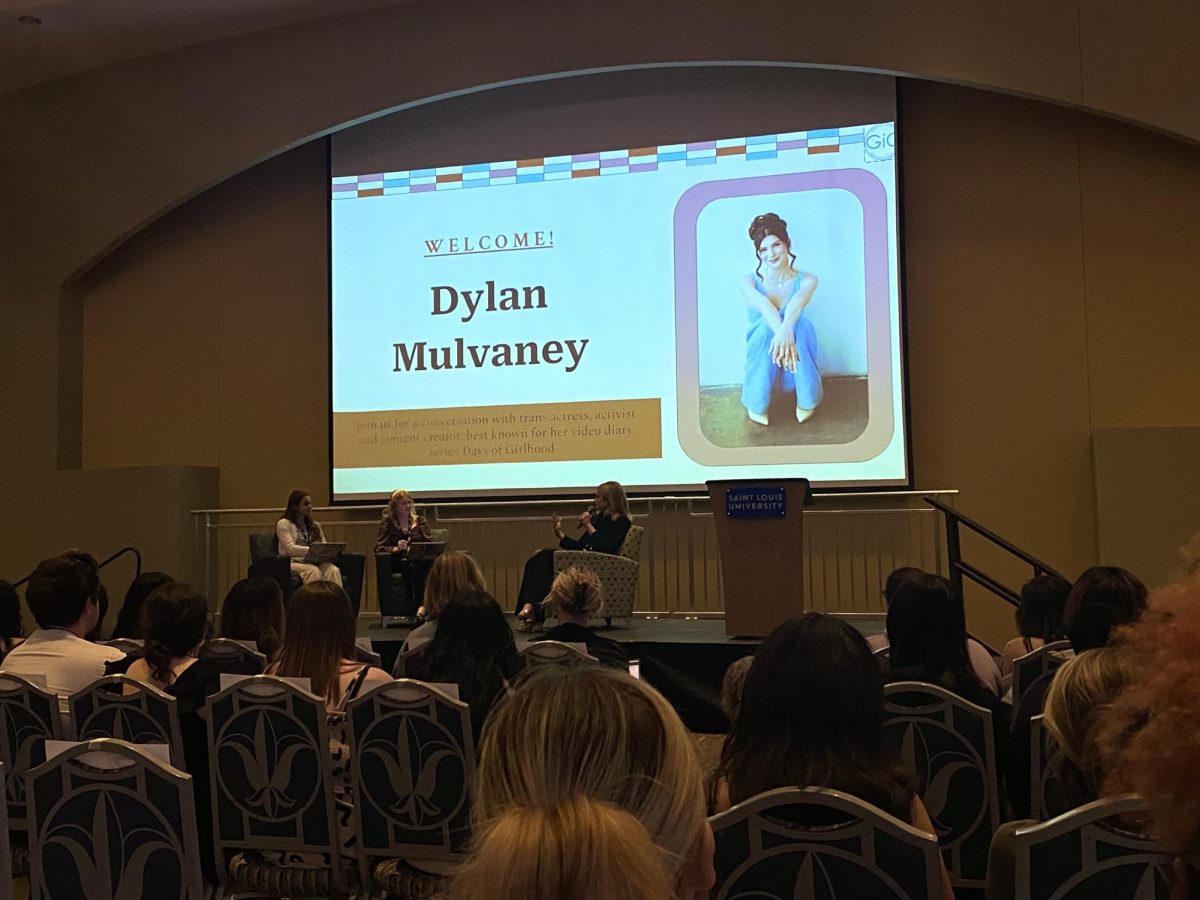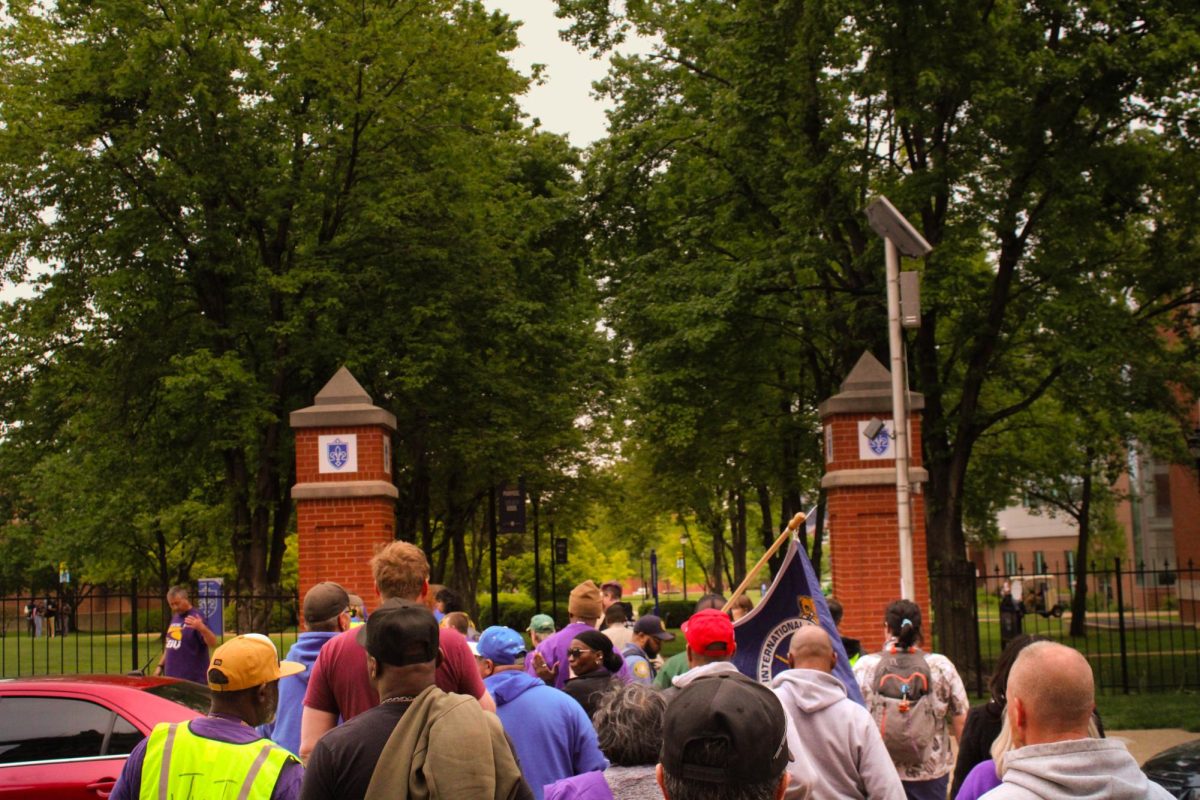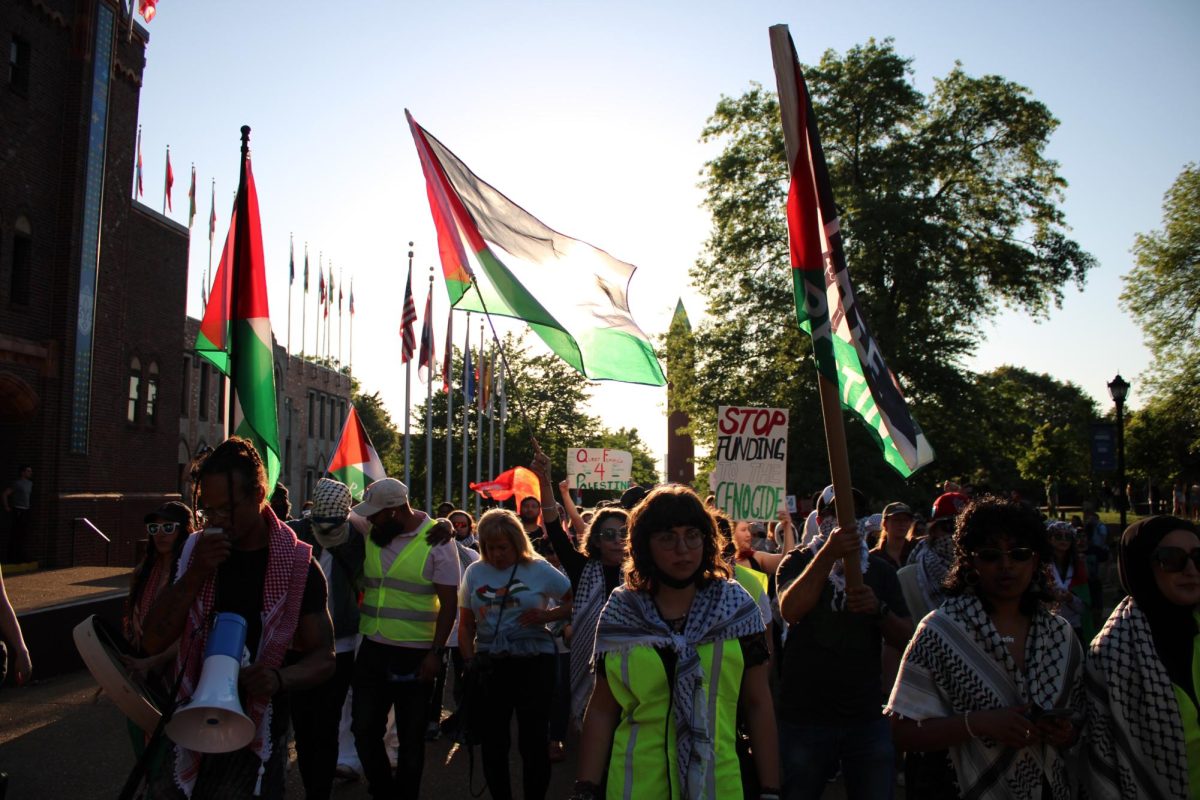Last Thursday, at one of the few remaining Atlas week events, the Saint Louis University branch of the United Students Against Sweatshops asked for help and support from the SLU community. USAS is part of a national organization.
For the past three years, USAS has been working toward adopting a new affiliation with the Workers Rights Consortium to ensure that clothing sold bearing the SLU name is sweatshop-free. USAS began its presentation by having student USAS members Annie James and Justin Lorenz model some of the more popular SLU clothing manufactured by Champion Sportswear.
Currently, Saint Louis University has a code of conduct established in collaboration with the Fair Labor Association that demands that companies used by SLU comply with standards of living wages, rights to unionize, prohibition of child labor and additional labor concerns. The FLA works with these apparel corporations to ensure that they adhere to the University’s code of conduct.
One of the major problems USAS has with the current situation is that the FLA does not seem to have very thorough or effective means with which to monitor its companies. The majority of the FLA’s accredited “independent external monitors” come from for-profit auditing firms, whose business depends on the continued support of companies like those participating through FLA.
“These monitors end up with a conflict of interest, because they want to stay hired, and if they report bad findings, they could lose their jobs,” said Katie Jonas, co-coordinator of SLU USAS.
The FLA only requires that 5 percent of their companies be inspected every year. Since 2002, this percentage has dropped from 10 percent. Based on the number of companies involved with the FLA, an individual company can go up to 19 years without being investigated.
There is an issue of both trust and quality of the FLA investigative reports. Christine White, the co-coordinator of SLU USAS said, “There is no real check at this point that these clothes we wear, that say SLU on them, are not made in sweatshops.”
Companies that satisfy the minimal requirements set by the FLA are then given a certification claiming that they are sweatshop free, and can use this certification as an advertising promotion. In contrast, “the WRC does not certify companies, because they believe in continual inspection of work conditions, not a one-time certification,” Jonas said.
The primary reason that USAS so strongly favors the WRC is that they rely on the workers to be their own monitors of the factory conditions.
“These reports are much more comprehensive,” Jonas said. “Who would be better to tell us what is going on in these factories? The workers who are there everyday, or the inspection that comes once every 19 years?”
Because the WRC’s investigative work is completely independent of the apparel industry, a higher level of trust and collaboration between the WRC and pro-worker organizations is achieved. This allows for the WRC to have access to detailed information about labor rights violations that would not be available to other monitors. If there are any worker complaints, a group is put together to investigate the issue, and the executive director personally assesses each complaint.
The main argument against forming an affiliation with the WRC is that there is a yearly fee.
“Because participation with the FLA is free, many people don’t feel that there is any reason to pay for the WRC,” White said.
There are 152 other schools affiliated with WRC. Many of these schools employ both the FLA and WRC in order to be better aware of what is going on with the companies they are employing. In the past eight months alone, 16 more schools have joined with WRC to help ensure higher-quality working conditions in the companies associated with their names. Of these 152 schools, 14 are Jesuit universities, including Georgetown, Marquette and Fordham. There are only 28 Jesuit universities in the United States.
“It just shows that our school needs to come on board with this campaign, especially where there are 14 other Jesuit schools who have already done so,” White said. ” Especially as dedicated members of the Jesuit tradition . who are we to make these claims, while buying clothes from [workers] in such awful conditions?”
USAS is asking students to write to University President Lawrence Biondi, S.J., expressing their interest in having SLU become an active participant of the WRC. A number of these letters were collected on Thursday, and a banner was present to collect signatures and to show support.
USAS demands that Biondi and the PCC address the issue of affiliating with the WRC by the end of this school year, as they don’t want the action to be delayed any longer.
To show support for USAS or write a letter to Biondi, contact the group by e-mailing Christine White, [email protected], or Katie Jonas, [email protected].






